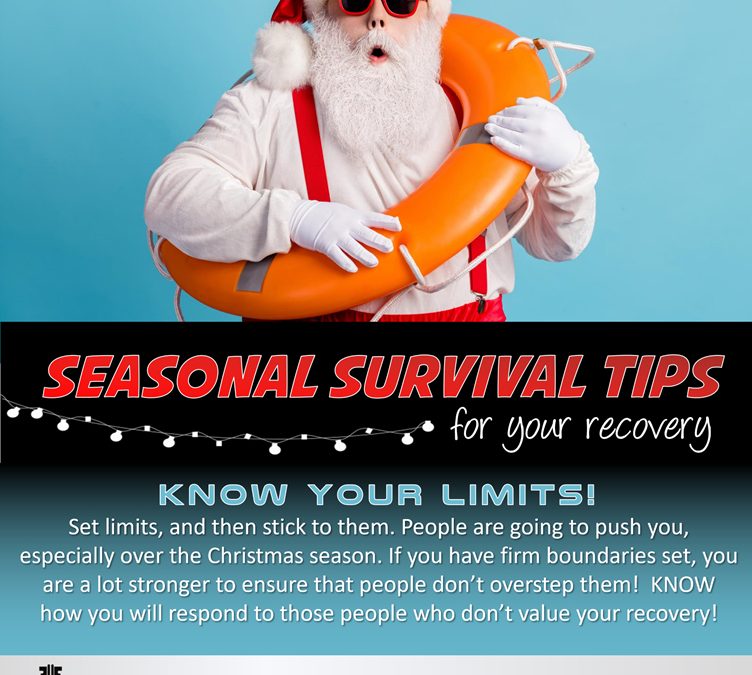Share Post On:
Secondly, people are going to try and push your limits and try and tempt you. Therefore, it is vital that you have firm boundaries in place prior to the onset of the festive season. It is also very important that you communicate these boundaries to people in your life. Remember, effective communication doesn’t imply aggressive communication, but rather being firm in your resolution and being assertive in your sticking to your boundaries. Practise how you will react to people who try and tempt you and don’t leave room for them to negotiate your boundaries. Some people might not respect or understand your recovery process, but you do! Ask yourself if those people who try and tempt you away from your recovery process are really people worth having in your life, especially if they don’t respect your decisions.
Remember, YOU HAVE THE POWER to navigate your life and this means you have the power to protect your recovery. Come back next week when we will talk about ‘high-risk’, ‘medium-risk’ and ‘low-risk’ situations and how they affect your recovery.

